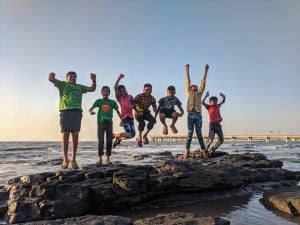
[Pexels]
Relocating to a new country, especially one renowned for its education system like Singapore, presents expat families with the challenge of navigating a multitude of educational options.
In Lion City, where the educational landscape is overseen by the Ministry of Education, choosing the right institutions for children is as important as choosing Singapore careers. However, it isn’t solely about fee structures but delving into the diverse programmes available for your child’s development.
Understanding the Educational Landscape

[Pexels]
Singapore’s educational framework encompasses both public and private institutions. While public schools welcome foreign students, the availability of seats might be limited, prompting most expat children to opt for private international schools.
These institutions often offer specialised curricula aligned with various countries, presenting a myriad of choices to consider.
Navigating Fee Structures and Quality

[Pexels]
One of the pivotal factors in selecting a school revolves around fee structures. Both local and expat students encounter fees for public schools, which tend to escalate annually. Private education, although more expensive, warrants thorough research to ensure accreditation and a high-quality educational programme.
Exploring Diverse Curricula

[Pexels]
The educational journey in Singapore offers a diverse range of curricula at different levels, spanning Montessori, International Baccalaureate and frameworks specific to countries like Canada or Australia. Some schools adopt an amalgamation of methodologies, emphasising not only core academic subjects but also holistic development through physical education and the arts.
Extracurricular Enrichment and Support

[Pexels]
Beyond traditional academics, many schools supplement learning with extracurricular and co-curricular activities. These programmes enable students to explore hobbies, develop practical skills and foster social connections.
Especially for mid-year entrants, customised programmes help integrate newcomers into the school community seamlessly.
Cultivating Holistic Development and Cultural Appreciation

[Pexels]
A truly comprehensive educational approach nurtures holistic development, emphasising multiculturalism, values and community service. In a globalised world, schools play a vital role in preparing students to thrive amidst diverse cultures while fostering strong communication and socio-emotional skills.
Faculty Quality and Support

[Pexels]
The calibre of educators significantly impacts a child’s educational journey. Reputable international schools prioritise well-qualified teachers versed in their subjects and adept at employing best educational practices. Creating a nurturing environment, especially for expatriate children, is a hallmark of these institutions.
University Connections and Future Prospects

[Pexels]
A school’s ties with universities can greatly influence a student’s future prospects. Institutions with strong connections to prestigious universities often groom students to meet rigorous admission standards. Graduates from such schools frequently secure placements at top-tier universities globally.
Final Considerations

[Pexels]
Singapore offers top-tier education at a reasonable cost, but choosing the right institution requires a holistic assessment beyond financial considerations. A school that fosters holistic development, celebrates diversity, boasts quality faculty and equips students for a complex, interconnected world is paramount.
In a nutshell, finding the ideal educational setting for expatriate children in Singapore necessitates a comprehensive evaluation of curricular offerings, cultural integration, faculty expertise and future pathways.
By considering these aspects collectively, families can pave the way for their children’s successful educational journey here!
